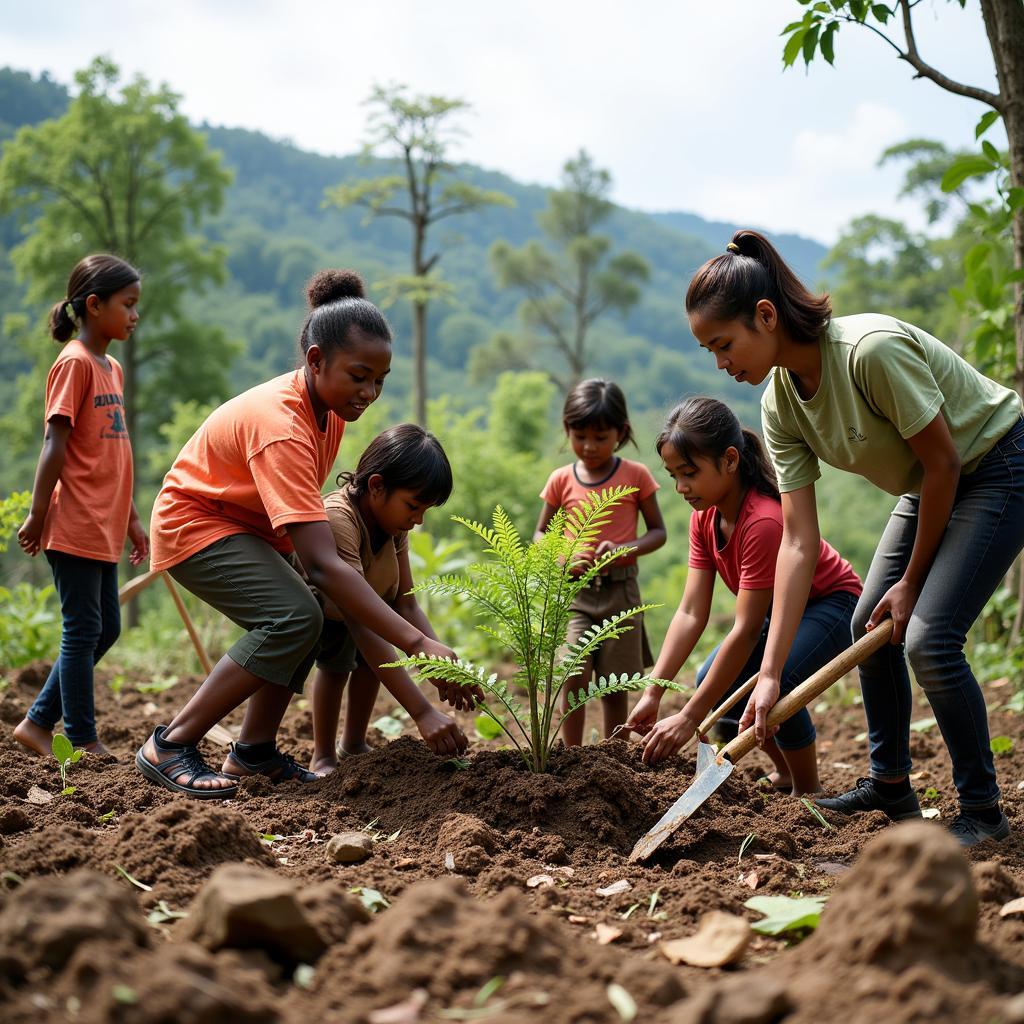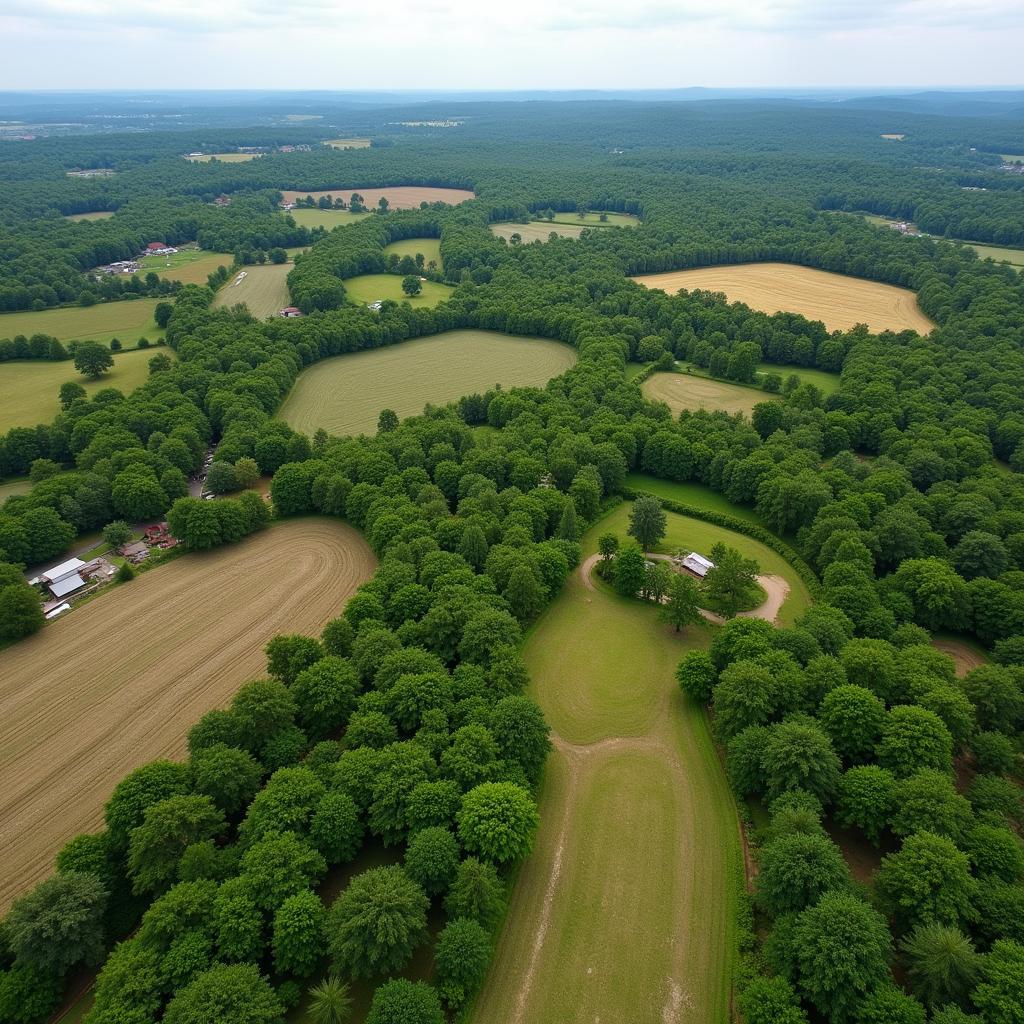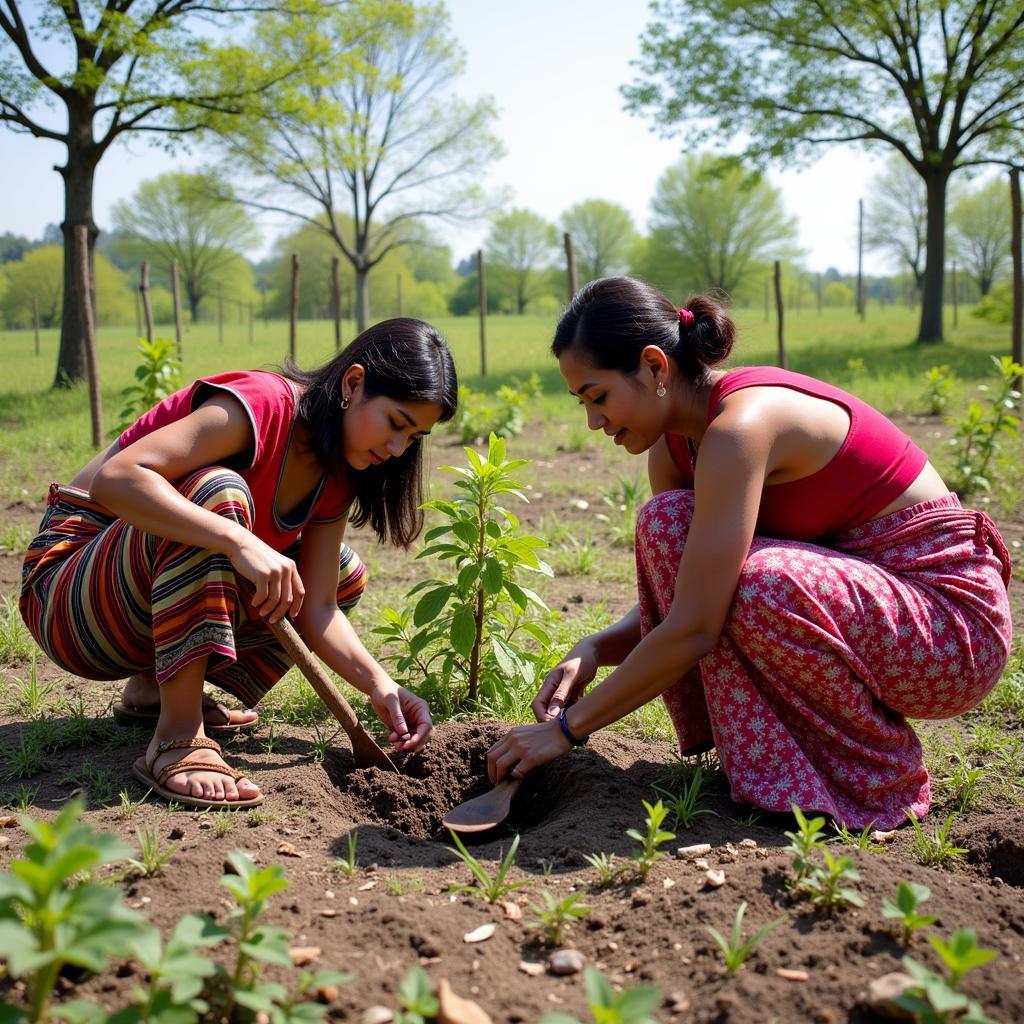Revitalizing Africa: The African Forest Landscape Restoration Initiative
The African Forest Landscape Restoration Initiative (AFLRI) is a crucial program aimed at restoring Africa’s degraded forest landscapes. This initiative recognizes the vital role forests play in supporting livelihoods, biodiversity, and climate resilience across the continent. It’s more than just planting trees; it’s about rebuilding ecosystems and empowering communities.  Community members participate in a tree-planting event as part of the AFLRI
Community members participate in a tree-planting event as part of the AFLRI
Understanding the Importance of the African Forest Landscape Restoration Initiative
Why is restoring Africa’s forests so important? The answer lies in the multifaceted benefits healthy forests provide. From mitigating climate change by absorbing carbon dioxide to providing habitat for diverse species, forests are essential for a sustainable future. They also offer critical resources for local communities, including timber, non-timber forest products, and clean water sources. The AFLRI addresses these vital needs, working to ensure the long-term health and productivity of these crucial ecosystems. What does the African Forest Landscape Restoration Initiative actually involve? It’s a collaborative effort involving governments, NGOs, local communities, and international organizations, working together to implement sustainable forest management practices.
The Scope of the AFLRI: From Local to Continental
The AFLRI operates on a large scale, tackling deforestation and degradation across multiple African countries. The initiative promotes sustainable land management practices that balance ecological restoration with the needs of local communities. This approach ensures that restoration efforts not only benefit the environment but also contribute to economic development and social well-being.  Aerial view of a restored forest landscape in Africa showing the impact of AFLRI This initiative is crucial for preserving biodiversity, especially for iconic species like the african grey elephant.
Aerial view of a restored forest landscape in Africa showing the impact of AFLRI This initiative is crucial for preserving biodiversity, especially for iconic species like the african grey elephant.
Key Strategies of the African Forest Landscape Restoration Initiative
The AFLRI employs several key strategies to achieve its goals. These include promoting sustainable forestry practices, supporting community-based forest management, and strengthening governance and institutional capacity. These strategies work in tandem to create a holistic approach to forest restoration. The initiative emphasizes capacity building and knowledge sharing to ensure that local communities have the skills and resources needed to manage their forests effectively. What is the primary goal of community-based forest management? It empowers local communities to take ownership of their forests, ensuring that restoration efforts align with their needs and priorities.
Empowering Communities Through Sustainable Forestry
The AFLRI recognizes the crucial role of local communities in successful forest restoration. By empowering communities to manage their own forests, the initiative ensures the long-term sustainability of restoration efforts. This approach also fosters economic development and improves livelihoods. Have you seen the majestic african forest elephant video? Protecting their habitat is a crucial part of AFLRI.
Dr. Anika Mosi, a renowned conservationist based in Kenya, emphasizes the importance of community involvement: “Sustainable forest management is not possible without the active participation of local communities. They are the custodians of these forests and possess invaluable knowledge and experience.”  Women involved in tree planting activity in the context of AFLRI.
Women involved in tree planting activity in the context of AFLRI.
The Future of African Forests: Challenges and Opportunities
While the AFLRI has made significant strides, challenges remain. These include securing adequate funding, addressing land tenure issues, and combating illegal logging. Overcoming these challenges requires continued collaboration and innovation. The AFLRI offers a powerful model for landscape restoration, demonstrating the potential to restore ecological integrity while improving human well-being. The differences between African and Asian elephants are fascinating. Learn more about them by reading about african elephant compared to asian elephant.
Investing in a Sustainable Future for Africa
The African Forest Landscape Restoration Initiative is an investment in a sustainable future for Africa. By restoring degraded forest landscapes, the initiative is helping to mitigate climate change, conserve biodiversity, and improve livelihoods. Continued support for the AFLRI is essential to realizing its full potential and securing a healthy and prosperous future for generations to come. Protecting the diverse african birds is another crucial aspect of the initiative.
Conclusion
The African Forest Landscape Restoration Initiative (AFLRI) is a vital program working to restore and revitalize Africa’s forests, fostering a sustainable future for both the environment and local communities. The initiative’s focus on community engagement and sustainable practices offers a promising model for landscape restoration globally.
FAQ
- What is the main goal of the AFLRI?
- How does the AFLRI involve local communities?
- What are some of the challenges faced by the AFLRI?
- How does the AFLRI contribute to climate change mitigation?
- What are the economic benefits of forest restoration?
- How does the AFLRI protect biodiversity?
- What is the long-term vision of the AFLRI?
Need support? Contact us 24/7: Phone: +255768904061, Email: [email protected], Address: Mbarali DC Mawindi, Kangaga, Tanzania.
